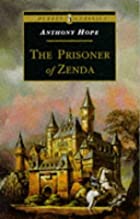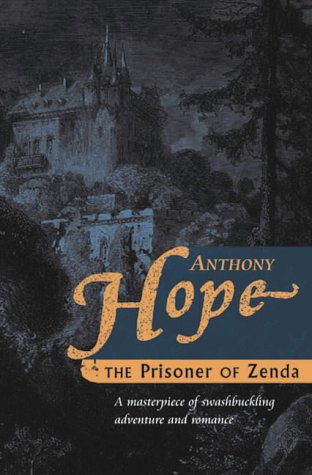

The subsequent adventures, and the sense of ironic playfulness throughout, have been models for many similar adventures in other novels, and a score of swashbuckling film scripts. The situation is further complicated when Rassendyll falls in love with the King’s intended bride, Princess Flavia, who is unaware of the impersonation.


Rassendyll, while still pretending to be the King, works on a plan to release the rightful monarch. Their plan is successful until Michael finds the real King in hiding, and imprisons him in the dungeon at Zenda castle. Michael’s plan is to drug his brother and so delay the coronation, but he is foiled by the King’s faithful officers, Colonel Sapt and Von Tarlenheim, who persuade Rassendyll to take advantage of his close likeness to the future King and impersonate him at the coronation. Travelling to Ruritania out of curiosity to see the coronation, Rassendyll becomes enmeshed in court and political intrigue when the future King’s younger brother, ‘Black’ Michael, attempts to usurp the throne. The book has as its hero the red-haired Rudolph Rassendyll, a minor English aristocrat who, through a common ancestor in the 18th century, bears an uncanny resemblance to Rudolph Elphberg, who is about to be crowned King of Ruritania. In 1979 Peter Sellers appeared in a knockabout satirical version. The classic version is perhaps that of 1937, which starred Ronald Colman, followed closely by the 1952 version with Stewart Granger, Deborah Kerr and James Mason. Published in 1894, it went into several editions, was turned into a stage play, and has also been filmed several times, firstly in the silent era in 1913 and then in 1922, with Ramon Navarro. The Prisoner of Zenda, the result of Hope’s idea of Ruritania, was a hugely successful novel, and it gave the English language a new adjective: ‘Ruritanian’. And then, in 1893, as he recalled in his autobiography: ‘I was walking back from Westminster County Court, when the idea of Ruritania came into my head.’ He nevertheless felt drawn to the literary world, even though writing fiction conflicted with his legal work. Under the pen-name of Anthony Hope he had begun to write short stories and novels, which met with little popular success. In 1887 he took silk, and became a barrister. He had an exemplary education: Marlborough public school, then Balliol College, Oxford, where he achieved a first-class degree and was President of the Union. Andrew Pugsley gives a spirited reading of the hugely popular Prisoner of Zenda, in which Rassendyll stands in for his kidnapped cousin, the rightful King of Ruritania, falls in love with Queen Flavia, defeats the dastardly Rupert of Hentzau, frees the king and nobly abjures his love.Ĭhristina Hardyment, The Times Booklet NotesĪnthony Hope Hawkins was, like his hero Rudolph Rassendyll in The Prisoner of Zenda, the epitome of the English gentleman. Titles by Anthony Hope Titles by Anthony Hope The Prisoner of Zenda (unabridged) Rupert of Hentzau (unabridged) Zofloya, or The Moor (unabridged) ReviewsĪnthony Hope created the mould for the ripping adventure yarns of the early 20th century.


 0 kommentar(er)
0 kommentar(er)
